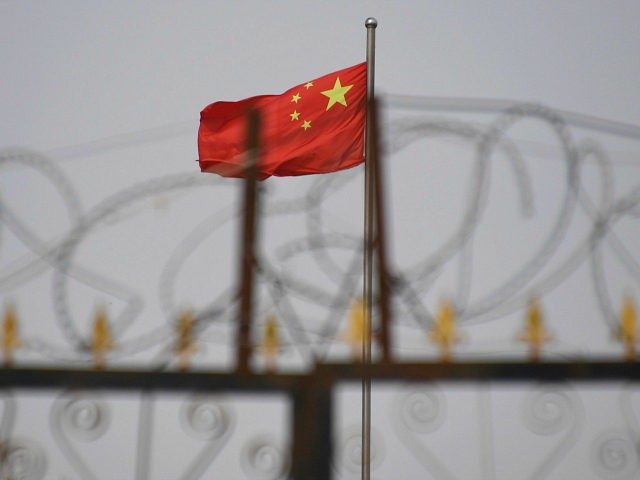Freedom House on Wednesday released the 2021 edition of its annual Freedom in the World report, charting an alarming “deterioration of democracy” around the world in 2020.
The report cited the “malign influence of the regime in China” as one of the most “profound” factors in the rising tide of authoritarianism.
Of course, the pandemic that swept out of China to destabilize the world was a major factor as well, and it was a powerful force multiplier for the identified malevolence of the Chinese Communist Party (CCP). As the Freedom House report, subtitled Democracy Under Siege, put it:
Beijing ramped up its global disinformation and censorship campaign to counter the fallout from its cover-up of the initial coronavirus outbreak, which severely hampered a rapid global response in the pandemic’s early days. Its efforts also featured increased meddling in the domestic political discourse of foreign democracies, transnational extensions of rights abuses common in mainland China, and the demolition of Hong Kong’s liberties and legal autonomy. Meanwhile, the Chinese regime has gained clout in multilateral institutions such as the UN Human Rights Council, which the United States abandoned in 2018, as Beijing pushed a vision of so-called noninterference that allows abuses of democratic principles and human rights standards to go unpunished while the formation of autocratic alliances is promoted.
The spread of the Wuhan coronavirus was accompanied by a matching spread of “excessive surveillance, discriminatory restrictions on freedoms like movement and assembly, and arbitrary or violent enforcement of such restrictions by police and nonstate actors,” which is tantamount to saying the CCP’s worldview and ideology spread along with its virus. A growing number of ruling regimes took advantage of the coronavirus to “quash opposition and fortify their power,” and China is the world leader in exports for opposition-quashing tactics and technologies.
Freedom House contended that the global erosion of democracy had “tangible effects on human life and security, including the frequent resort to military force to resolve political disputes,” citing conflicts in Libya, Yemen, Ethiopia, and the Nagorno-Karabakh region. In each case, Freedom House pointed out that a powerful authoritarian government with little fear of pushback from the free nations of the world was involved in starting or escalating the conflicts.
Just a few days ago, Chinese state media argued the West should stop criticizing Beijing’s ruthless oppression of pro-democracy protesters in Hong Kong because those demonstrators are criminals just like the January 6 Capitol Hill rioters. Freedom House lamented the situation in Hong Kong at length, without engaging the CCP’s claims that all of its abuses are positive features of its strong and stable authoritarianism:
In this climate of impunity, the CCP has run roughshod over Hong Kong’s democratic institutions and international legal agreements. The territory has suffered a massive decline in freedom since 2013, with an especially steep drop since mass pro-democracy demonstrations were suppressed in 2019 and Beijing tightened its grip in 2020. The central government’s imposition of the National Security Law in June erased almost overnight many of Hong Kong’s remaining liberties, bringing it into closer alignment with the system on the mainland. The Hong Kong government itself escalated its use of the law early in 2021 when more than 50 pro-democracy activists and politicians were arrested, essentially for holding a primary and attempting to win legislative elections that were ultimately postponed by a year; they face penalties of up to life in prison. In November the Beijing and Hong Kong governments had colluded to expel four pro-democracy members from the existing Legislative Council, prompting the remaining 15 to resign in protest. These developments reflect a dramatic increase in the cost of opposing the CCP in Hong Kong, and the narrowing of possibilities for turning back the authoritarian tide.
The CCP’s core argument is that all democracies are illegitimate because they have no foundation of authoritarian power to rest on; their people cry out for the kind of “justice” and “security” that only an undemocratic centralized state can deliver. The real threat to democracy around the world is that the political elites of free nations are beginning to agree with this argument, embracing a new vision of peripheral democracy with an authoritarian core — a foundation of power that is not subject to the will of voters in any meaningful way, to tackle “vital issues” that have been decided by a “consensus of experts” whose judgment should not be questioned by the common people.
That is the nature of the ideological virus spreading around the world in the wake of the Wuhan coronavirus, and it is a worldview embraced far more fervently by former President Donald Trump’s opponents than his allies. Democracy is nearing a crisis point where its very definition and nature will be questioned more vigorously than ever before, by forces both sincere and unprincipled, well-meaning and malevolent, internal and external. The ruthlessly exploited emergency powers accumulated during the pandemic, which Freedom House criticized through its 2021 report, will not dissipate until the definition of democracy is resolved.

COMMENTS
Please let us know if you're having issues with commenting.